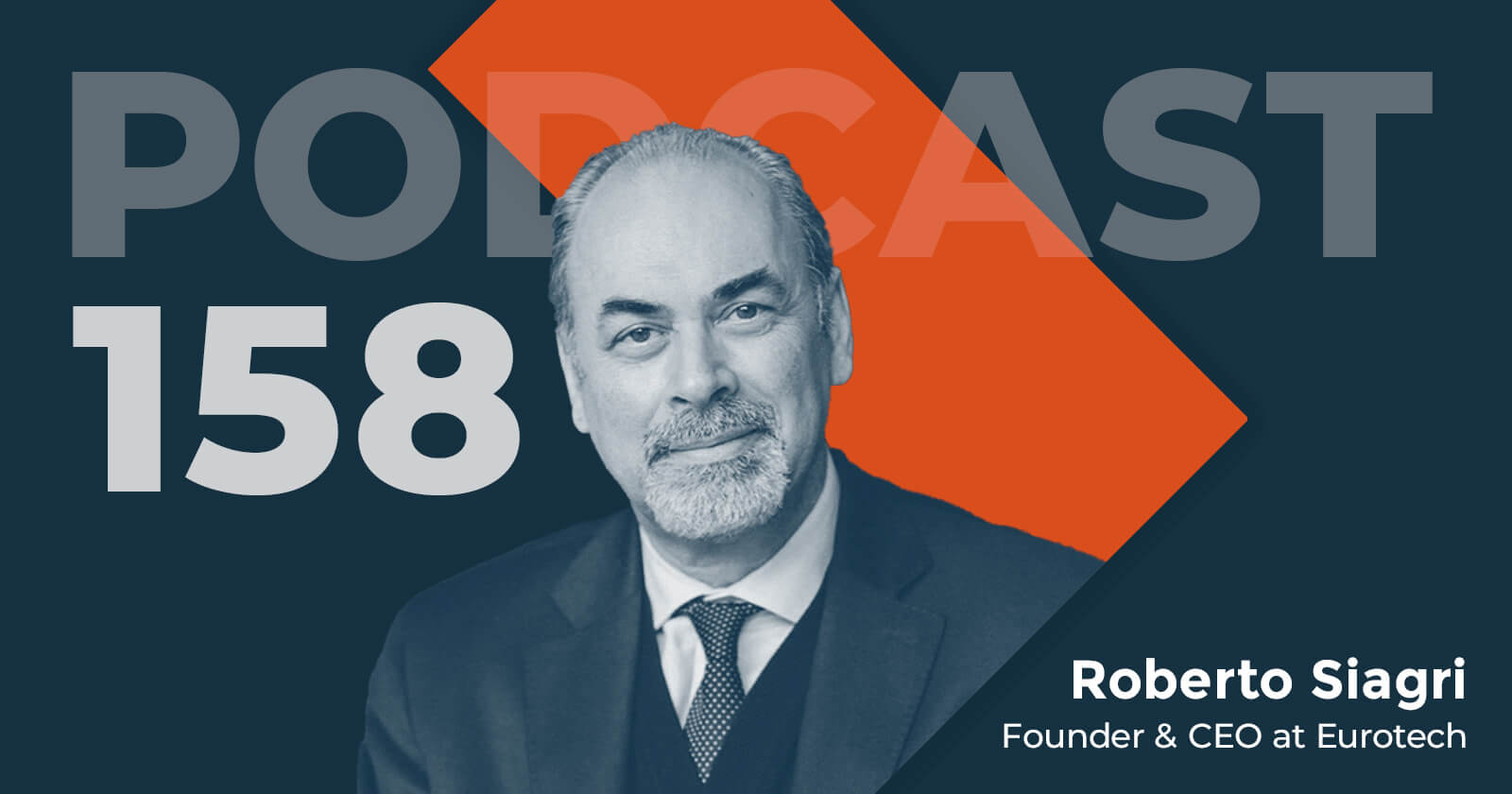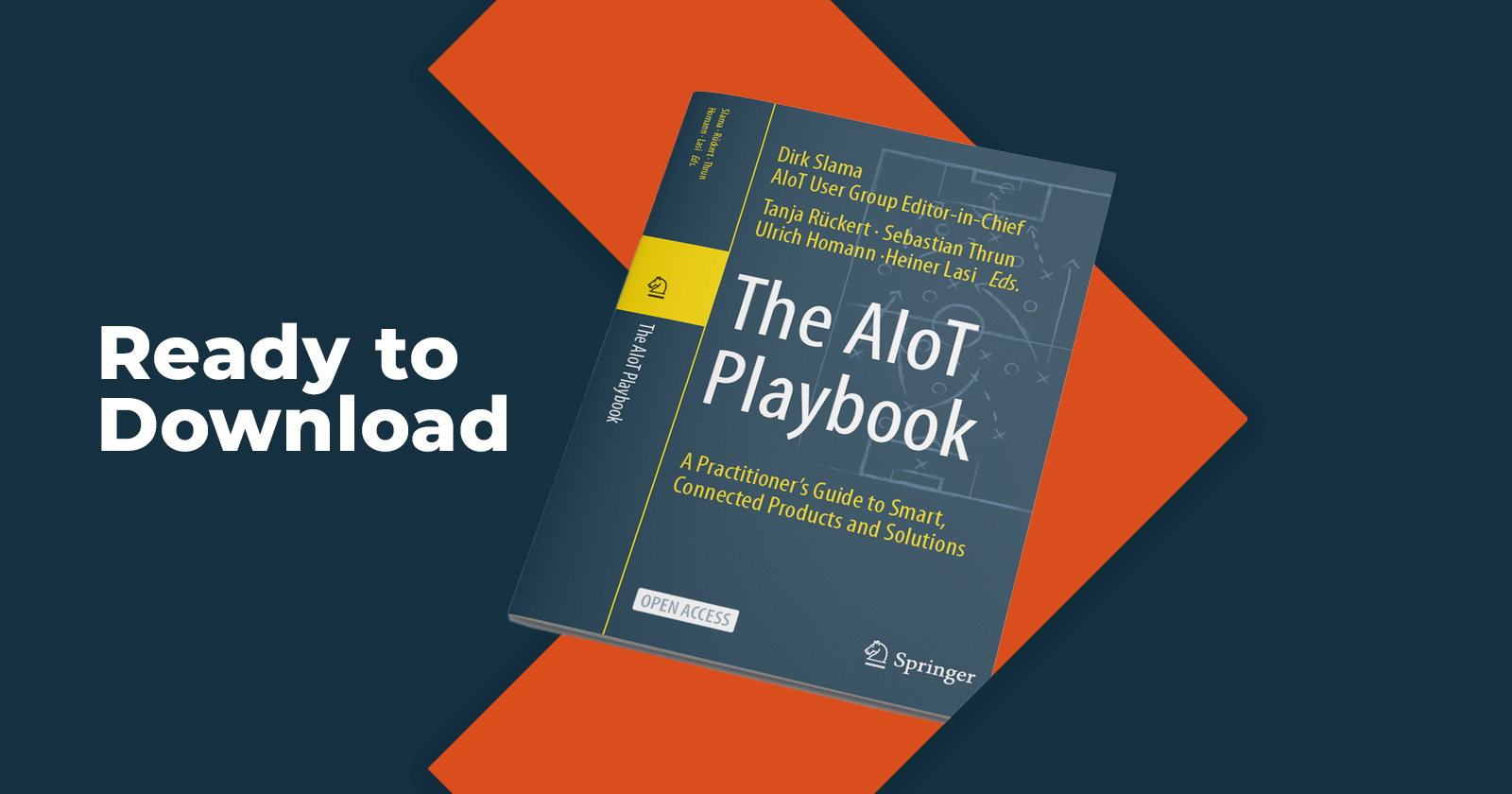Spotlight Series: Breaking Out of Digital Transformation Gridlock
Ken Forster

This series highlights the key insights and lessons from our Digital Leadership series of podcasts. We spotlight the important takeaways from our interviews in an accessible format. The following insights come from Christian Sønderstrup, digital transformation consultant and advisor. Stay tuned for the full podcast interview with Christian, in the meantime, take a look at our full library of podcasts.
My name is Leif Eriksen, Insights Partner here at Momenta, and our guest today is Christian Sønderstrup, Digital Transformation Consultant & Advisor. Christian has spent his career helping organizations navigate the digital transformation journey, including most recently in the renewable energy industry. His experience includes Chief Digital Officer, Service at Siemens Gamesa, and VP, Head of Smart Data at Vestas Global Service.
Let’s start with a little bit about your background, and how you got involved in the digital transformation arena, and maybe even talk a little bit about your optimism about the future. You know it’s a challenging time for a lot of organizations, so tell us what you found over the course of your career, and how you got to where you are today.
Throughout my career I’ve always worked on strategy, and the question of how companies become substantially more successful, independent of their starting point. More successful is not just incremental, “Let’s make it two percent better next year”, it’s really step changes in performance I’ve always worked on. In the very early days, I did that as a McKinsey consultant, and subsequent to that I had, roles like Head of Business Development, Corporate Strategy, VP of Transformation, and as you mentioned latest as Chief Digital Officer at a large industrial OEM.
As you work through the problem of becoming more successful, then at some point digital came, and digital is just a suitcase term for a slew of new technologies. You can now use those to answer the same question, how do we become successful? And that was sort of my transition into digital, I actually see digital and all those technologies as tools to become more successful.
I’m super-optimistic about the future, not just for industry but for all companies, there’s the Fourth Industrial Revolution where all of these digital technologies allow for so many new opportunities, both on the individual tasks, or on value proposition changes, but also new business models, and entirely new industries. That’s just an exciting space to be in where all of these changes are happening at the same time.
How do you see this playing out in asset intensive industries, such as energy and manufacturing? Do you envision the same kind of dynamic eventually playing out? We don’t see it today of course, but eventually playing out. And if not, why?
I think we’ll see massive disruption also in industry, but it would not take the same blockbuster form as Netflix, Amazon, or Spotify, but it will still happen. I think the reason we’ll not see these blockbuster things has to do with the industry structure, and that each industrial subsector is very different, it has different industry structures and values created in different ways throughout those value chains. We’ll see disruptive companies, but they’ll be niche players. They’ll come in and take slivers of value that can be harvested with digital technologies, that will certainly happen, but they’ll not be these big blockbuster things, it will be many small things. Because digital, and the value from digital is real, and predictive analytics, which I know fairly well, you can easily harvest 3 to 10 percent of improvement, and somebody will go and do that. Hopefully incumbent companies do it themselves, but if not, they’re leaving money on the table and somebody else will come and do it. We will see that transformation, and money and value being moved up and down the value chain but will materialize slightly differently as we’ve seen in other industries.
Now that we’ve set the stage for how it may play out, what’s holding it all back today? Why aren’t we moving, again, like we’re seeing in other sectors and sub-sectors? Is it the technology? Is it the culture that many of these traditional companies have? Is it available resources, funds, people to develop this stuff?
I think there are many contributing factors. In my experience, one of the biggest impediments in going after these opportunities and harvesting them fastest, is the organizational culture, the mindset, and the nature of large corporations. Digital requires a different mental model than we might have seen elsewhere. Digital by its nature is easy to change where industrial goods are slow to change, you make a capital good asset, and it sits there, you’re very worried that you might have health & safety risks, that it might explode etc. The development processes are very slow, and for very good reasons, like driver stage model, and you take your development through that, and for good reasons.
One of them, now comes digital that requires a different operating model. Few companies are able to do both at the same time. Most that I’ve seen, they sort of take the existing model, “Ah, let’s apply this”, because it works really well for us when we design a widget. It works really well, let’s do digital technology, digital solutions with the same approach. That certainly fails, and few companies are able to harness two operating models in the same organization, at the same time, and get those two to play together: for instance, a stage-gate model, and an agile model with two-week spreads. It’s very difficult for organizations to harness those two mental models at the same time.
It sounds like a fairly generic thing, that all industries we talk about cultural inertia the way they develop products etc., but will there be any variation from sector to sector, subsector to subsector, and if so, do you have some thoughts on how that might be?
Yes, I think the organizational challenge, and the cultural challenges are going to be fairly the same across subsectors. I think however the way opportunities from digital manifest themselves will be very-very different by subsector. Let’s take for instance “smartifying” your product, I think many industrial companies these days are going through the IoT enablement of them, collect data, make intelligent predictions, optimize usage, foresee failures, automating, predictive analytics, remote reset, remote troubleshooting, all that stuff; those are feasible in some industries, and others not.
I’d like to circle back to your comment about organizational culture and inertia. What’s become clear in the last few years, and we’ve certainly seen this at Momenta Partners with our customers and clients is that it’s very hard, harder than most executives realize, to make this transition. Is that fair to say that this stuff is difficult? If so, what can executives in Digital Industry and the industrial and infrastructure spaces do to get past these challenges, and successfully navigate the digital transformation journey?
To your first question you’re right, this is hard, this is not just incremental change, digital is transformative change. So, it’s not just your next project, because we know how to do projects as companies, we know how to do that; you define your end state, you define your project plan, enough of the team goes with the steering committee and milestones, so we know how to do that. But digital transformation is not just another project, and that’s why we struggle. So, what can companies do?
I think there’s a number of things. The first step is to really recognize that it’s not a project, the transformation is not a project, the project has a defined start and a defined end and outcome. This is a journey, and what we’re seeking to change often is the very essence of the company, or the very essence of the product. We’re going from, we are a widget manufacturer, to we are now a tech company or a digital company that happens to also make their widgets. That journey touches on identity, touches on culture, touches on the way the operating model, and the DNA in the collaboration models in tech companies work. If you’re not very aware that’s what you’re embarking on with the digital transformation, then you’re bound not to take it seriously enough, and dedicate enough senior leadership resources to think it through and lead that process. I think the first step is recognizing that this is a digital transformation, and it really is about culture and change.
Second step is, being very clear on what is it you want to do with digital. I observe it at three different levels; what is it you want to do with digital? The one that gets most of the media buzz is what we’d call disruption, so a startup company reinvents taxis, Uber, or reinvents hotels, Airbnb, or the way music is consumed with Spotify and streaming. That type of disruptive innovation and inventing new business models, this is one way you could go about your digital transformation. That is very hard for incumbents, because often it entails that you canabalize yourself. But that’s one level or one way that digital transformation of digital strategy could manifest itself.
The second one is, and I alluded to it earlier, is you smartify your value propositions, you put sensors on it, you have remote monitoring, or you have AI embedded in your devices, or you can talk to it using actual language programming etc. That’s the second type, and you don’t necessarily disrupt anything, but you do reinvent your product, and that requires a different approach. So that’s the second way you could articulate what it is you want to do.
The third way is that you take the same toolbox essentially, but you use it for internal operations. So again, you could use it in machine learning or robotics, to manage inbound logistics manufacturing, out-out logistics pricing, finance etc., but that’s about internal operations.
Where do we go from here? Particularly for the industrial infrastructure worlds, what can we expect, and what are some of the wild cards over the next three, four, five years as we enter this decade of the 20’s?
Where we go from here, all incumbents they need to start trying. If they’re not trying or running, or trying to win, then they will lose, because the competitive forces will make sure that somebody else goes and takes their pie. First, start running and start practicing, and we need to run to stand still. I think we will see many companies emerge, as we discussed earlier also in the industrial space. Finding specific solutions in your value proposition, and if you can’t develop it then go acquire them but go to it early and embed that talent into your organization and use that. Most acquire a capability or a specific solution, but also as an acquirer, you’ve just acquired a team of potentially very talented software developers, and data scientists, keep them in your organization and help yourself grow your organization further. I think that is the only way to go.
Stay tuned for the release of the full podcast conversation with Christian next week!

Momenta Partners encompasses leading Strategic Advisory, Talent, and Investment practices. We’re the guiding hand behind leading industrials’ IoT strategies, over 200+ IoT leadership placements, and 25+ young IoT disruptors. Schedule a free consultation to learn more about our Connected Industry practice.



